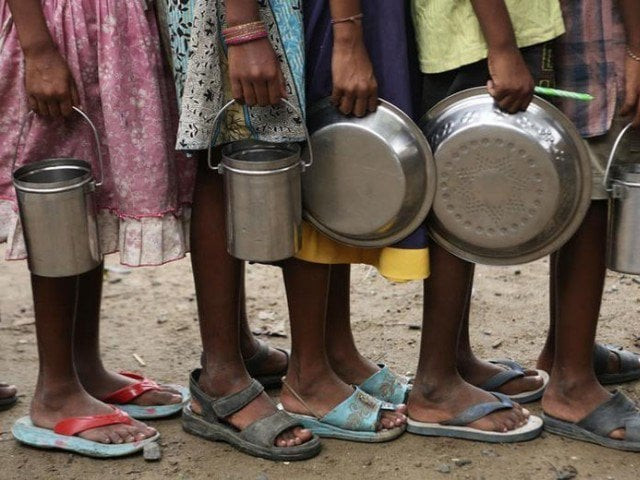Growth for poverty reduction: a pie in the sky?
The only sensible way forward is to try alleviating poverty without relying on the already rich

PHOTO: REUTERS
According to the World Bank, which positions itself as the leading global expert agency in the fight against poverty, 10% of the world’s population (some 736 million people) is living on less than $1.90 a day, down from nearly 36 in 1990. For years, the World Bank used the dollar-a-day income as the bottom line for defining who was poor. In 2008, however, the international poverty line was re-defined (at $1.25 per day) and in 2015 (at $1.90 per day). The World Bank argued that these revisions better reflected the reality of how much money was needed for people to not be considered poor.
However, many critics have argued that even this revised World Bank measure is not adequate. Many NGOs and academics consider the range of five to seven dollars per day to be a more accurate reflection of what it takes to escape poverty. Based on these higher income-based thresholds, the numbers living in poverty these days would be as high as 4.2 billion. Thus, depending on what income threshold we use to measure poverty, poverty estimates vary significantly.
Even if the World Bank’s poverty line is accepted as more practical, poverty reduction efforts remain quite uneven, especially in the poorest countries of the world, such as Sub-Saharan African countries.
Alongside debates about the number of people who are poor in the world, another major debate concerns how to go about addressing poverty. A prominent United Nations Conference on Trade and Development (UNCTAD) economist, David Woodward, for example, has argued that the existing economic model focused on increasing growth to address poverty implies a structural impossibility. According to his calculations, even if the world maintains the fastest rate of income growth (which was between 1993 and 2008 — after the debt crisis of the 1980s that crippled much of the developing world and before the banking collapse of 2008) incomes of the poorest 10% merely increased at a rate of 1.29% each year. It would, thus, take 100 years to bring the poorest 10% to earn $1.25 per day, and 207 years for them to make five dollars per day, even if the global economy can maintain a persistently high growth rate in the future.
Eradicating poverty is slow because our existing economic models are very lopsided. Oxfam, for instance, pointed out last year how 82% of the wealth generated in 2017 had gone to the richest 1% of the global population, while the 3.7 billion people who make up the poorest half of the world saw no increase in their wealth. Given this scenario, the rich would have to get a lot richer, so that the poor can make $5 a day.
Moreover, these above estimates are also extremely optimistic as they do not account for the slowdown in income growth since the financial crash. They do not factor in the spikes in food prices that have effectively wiped out the incomes of the poor over the past few years, or the fact that climate change is already unravelling developmental gains across the global South.
The only sensible way forward is to try alleviating poverty without relying on the already rich. Instead of trying to make the economic pie bigger, there is a need to pay closer attention to who is getting how big a slice of it, and to make this distribution system fairer.
Published in The Express Tribune, December 27th, 2019.
Like Opinion & Editorial on Facebook, follow @ETOpEd on Twitter to receive all updates on all our daily pieces.















COMMENTS
Comments are moderated and generally will be posted if they are on-topic and not abusive.
For more information, please see our Comments FAQ